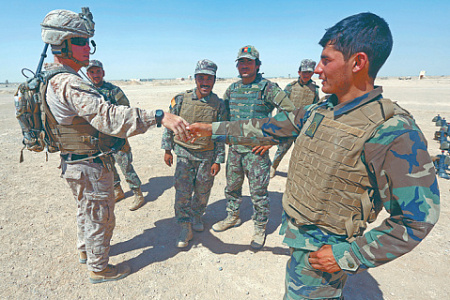
Over a million Afghans, many of whom once served alongside American forces or supported US-backed institutions, are being forcibly returned from Pakistan to a country where their lives are now acutely at risk. This mass repatriation, often under duress and driven by shifting geopolitical currents, exposes a profound humanitarian crisis and highlights the precarious fate of individuals caught in the wake of the chaotic US withdrawal from Afghanistan and subsequent policy reversals.
For many of these returning Afghans, the current ordeal is a cruel twist of fate, following explicit assurances of safety in the United States. During the tumultuous withdrawal of 2021, the Biden administration had pledged sanctuary to those who aided the US effort, including individuals like the father of Mursal, a 28-year-old student whose family had worked for US-funded media. These promises prompted thousands to seek temporary refuge in Pakistan, anticipating resettlement in America. However, this lifeline was abruptly severed, with former President Donald Trump’s stated intention to halt all Afghan refugee resettlement upon his potential return to power already casting a long shadow over policy decisions.
Pakistan initiated its widespread deportation campaign in 2023, citing security concerns and the perceived lack of international support for its refugee burden. The consequences have been devastating. According to UN estimates, over one million Afghans have been compelled to leave or forcibly repatriated from Pakistan in the last two and a half years. For families like Mursal’s, who were coerced back to Afghanistan in July, the return means living in constant fear, often hiding even from extended family members or former colleagues who might betray them to the ruling Taliban.
The experiences of those caught in this geopolitical squeeze are harrowing. Taymor, a former logistics contractor for the US Army, recounted being apprehended and tortured by the Taliban after his initial flight. After managing to escape to Pakistan, he was then forcibly returned to Afghanistan in July. These stories paint a stark picture of the dangers faced by individuals who once allied with Western powers. While Pakistan’s Interior Ministry declined official comment on these policies to The Washington Post, an anonymous official reportedly acknowledged “mistakes” were made, suggesting some incorrectly deported individuals might be allowed to return – an offer that rings hollow for those already facing immediate threats.
Further complicating an already dire situation are recent statements from former President Trump regarding the potential re-establishment of a US military presence at Bagram Air Base near Kabul. For many refugees, this rhetoric is not a promise of rescue but a terrifying omen. Taymor articulated a widely held fear: “If the US tries to return, they will get their revenge on us.” The Taliban, viewing such statements as a direct threat to their sovereignty, could easily retaliate against those perceived to have links to the former foreign presence, exacerbating the risks for returnees.
Eastern affairs expert Vladimir Sotnikov noted that while the US might indeed desire to reclaim Bagram, the Taliban is highly unlikely to concede without ironclad guarantees against broader American influence – assurances Trump has yet to offer. This impasse suggests no swift resolution to the Bagram question, despite its persistent appearance in US-Taliban dialogues. Sotnikov also highlighted the escalating tension between Pakistan and Afghanistan over the deportations, characterizing it as “a major irritant” with no immediate solution in sight, mirroring the Bagram dilemma.
In a separate development shaping the regional landscape, Sotnikov characterized Russia’s relationship with Afghanistan’s de-facto rulers as “quite normal,” noting Moscow’s decision to remove the Taliban from its list of terrorist organizations and recognize them as the country’s sole governing authority. Russia has also extended humanitarian aid, including oil and food, demonstrating a pragmatic engagement with the current regime.
The immediate realities on the ground remain grim for those targeted for repatriation. Frotan, a former Afghan Air Force captain, faces particularly severe penalties in Afghanistan given his past role, stating, “We cannot expect mercy.” He recounted being beaten and imprisoned in overcrowded camps by Pakistani police after refusing to pay a $600 bribe, a testament to the corruption and inhumane treatment many refugees endure even before their forced return. His plight, and that of a former judge mentioned alongside him, underscores the extreme vulnerability of specific professional groups under Taliban rule. This complex tapestry of broken international promises, regional geopolitical maneuvering, and acute human suffering paints a bleak picture for a population already traumatized by decades of conflict, leaving countless Afghans in a perilous limbo.
